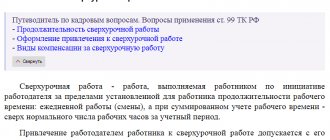A void contract is an agreement the essence of which is contrary to the requirements of the law. As a rule, when concluding such an agreement, the interests of counterparties and third parties may suffer. An agreement is considered void in the following cases:
- the law does not contain a closed list of grounds for classifying contracts as void;
- The recognition of part of the conditions as void does not necessarily entail this for the entire contract.
What the law considers to be a void contract can be inferred from the provisions on void contracts and void transactions. An agreement that was concluded in violation of the rules is qualified depending on the nature of the violation. We are talking about nullity when the very nature of the contract contradicts the established rules, that is, regardless of the recognition of this by the court (Part 1 of Article 166 of the Civil Code of the Russian Federation).
What is a void contract?
According to the Civil Code of the Russian Federation, a void contract is one of the options for invalidity. An agreement that violates the requirements of the law is invalid and void from the moment of its conclusion. However, the law does not contain an exhaustive list of grounds for nullity. The law recognizes such transactions as imaginary and feigned ones (Article 170 of the Civil Code of the Russian Federation, clause 8 of the Resolution of the Plenum of the Supreme Arbitration Court of the Russian Federation dated October 12, 2006 No. 53). Before you file a lawsuit regarding a contract and demand that it be declared void, make sure that there are signs of this.
Signs of a void contract
The agreement should not contradict morality and law and order
An agreement is void if it contradicts legal order and morality (Article 169 of the Civil Code of the Russian Federation). Sometimes such transactions are concluded on behalf of minors by their parents, adoptive parents or guardians in relation to minors (clause 1 of Article 65 of the RF IC, Article 169 of the Civil Code of the Russian Federation, paragraph 3 of clause 17 of the Resolution of the Plenum of the Armed Forces of the Russian Federation dated June 23, 2015 No. 25). The Constitutional Court of the Russian Federation pointed out the qualifying feature of an antisocial transaction. He believes that the purpose of such an agreement is to achieve a result that not only does not comply with the law or moral standards, but deliberately contradicts the foundations of law and order and morality. This contradiction is obvious to participants in civil transactions. The antisocial nature of a transaction is determined by the courts taking into account:
- actual circumstances;
- the nature of the violations committed by the parties;
- consequences (definition of the Constitutional Court of the Russian Federation dated 06/08/2004 No. 226-O).
The basis for declaring a contract void is the imaginary nature of the stated result.
Transactions of an imaginary nature are considered void. The participants in such a transaction do not intend to create its conditions and legal consequences (determination of the Supreme Court of the Russian Federation dated September 6, 2016 No. 41-KG16-25). To confirm the imaginary, it is necessary to establish that its participants did not plan to create, change, or terminate civil rights and obligations (determination of the RF Armed Forces dated July 25, 2016 in case No. 305-ES16-2411, A41-48518/2014). The court also points out that its participants do not have the goal of executing or demanding the execution of the transaction (determination of the Supreme Court of the Russian Federation of May 17, 2016 No. 2-KG16-2). As a rule, creditors declare such transactions as part of the debtor's bankruptcy. It can be difficult to challenge such a deal. The courts refuse the request if the transfer of funds is confirmed (resolution of the Arbitration Court of the Central District dated April 17, 2018 N F10-287/2017 in case No. A68-57/2016). It is possible to establish imaginaryness if:
- there was no approval of the transaction;
- the parties significantly underestimated its value.
For example, the bankruptcy trustee demanded that the purchase and sale agreement for a vehicle be invalidated and the corresponding consequences applied. The court granted the claim. He came to the conclusion that the contract was void due to its imaginary nature. The company entered into a controversial agreement with its deputy director, that is, with an interested party, and violated the approval procedure. The agreement was not actually fulfilled: the defendant formally registered the vehicle, did not pay taxes, did not undergo technical inspection, and did not enter into MTPL agreements (resolution of the Arbitration Court of the Central District dated November 23, 2017 No. F10-5437/2016 in case No. A35-6874/2015).
The transaction should not have any signs of sham
The law defines a sham transaction, the purpose of which is to cover up another agreement or conclude it with another subject (Article 170 of the Civil Code of the Russian Federation, paragraph 87 of Resolution No. 25). Courts recognize such transactions as:
- agreements that the parties actually concluded for a large amount (clause 87 of Resolution No. 25);
- sham loan agreements, if the purpose of the agreements is to increase controlled accounts payable with the aim of subsequently reducing, in the interests of the debtor, the number of votes of independent creditors (paragraph 10, paragraph 18 of the review of judicial practice of the Supreme Court of the Russian Federation No. 5 (2017)).
The chain of transactions may turn out to be feigned. This happens when companies seek to evade taxes, make it impossible to recover property, etc. In judicial practice, there are examples when the discovery of such a chain led to the recognition of contracts as void. For example, the court found that the debtor intended to withdraw the company's assets. The company entered into a transaction for the gratuitous transfer of real estate into the ownership of the counterparty. The property was then transferred successively to the other four companies. The court revealed signs of pretense. The debtor intended to alienate the property to the last buyer. The purpose of the gratuitous transfer was not to invest in the main or subsidiary companies, but to sell the asset to the beneficiary. The company entered into the transaction to exclude the possibility of repaying the debt to creditors at the expense of the disputed asset. The gratuitous transfer of property allowed the participants in the transaction to also evade paying taxes on amounts from the sale of property (resolution of the Arbitration Court of the Volga-Vyatka District dated October 24, 2017 No. F01-4697/2017 in case No. A43-12156/2016).
Transactions with incapacitated persons are prohibited
The parties to the transaction return what they received in kind or reimburse the cost if the party to the transaction is an incapacitated person (Article 171 of the Civil Code of the Russian Federation). The law included such participants as persons incompetent due to mental illness, as well as minor citizens who, due to their age, cannot enter into agreements. An unscrupulous party uses the provisions of the law to challenge contracts. As a rule, if there is no video recording of the transaction, representatives of the injured party try to prove the reality of the transaction. To confirm the legality of the conclusion of the contract, the bona fide party submits requests to the traffic police and medical institutions. For example, she proves the normal mental state of the counterparty, citing the fact that the latter passed a commission to renew a driver’s license, the lack of registration in a psychiatric hospital, and the conclusion of other transactions. Evidence also includes testimony of witnesses, medical documents, conclusions of a commission of forensic psychiatric experts (decision of the Chelyabinsk Regional Court dated December 15, 2011 in case No. 33-13261/2011).
CALL +7 (495) 255-11-80, FREE CONSULTATION!
Invalidity of transactions in civil law
May 6, 2021 6:13 pm
The lawyers were told what is meant by a transaction, the grounds for declaring it invalid and voidable, as well as controversial aspects in the current legislation
On May 6, the Federal Chamber of Lawyers of the Russian Federation held another training webinar. A lecture on the topic “Invalidity of transactions in the Civil Code” was given by the editor-in-chief of the Russian School of Private Law, head of educational programs Lextorium.com, professor and director of the Center for Comparative Law of the National Research University Higher School of Economics, arbitrator of the ICAC, Arbitration Center at the RSPP, actual state counselor of justice 2nd class , Candidate of Legal Sciences Andrey Egorov.
At the beginning of his speech, the speaker recalled that, according to Art. 153 of the Civil Code of the Russian Federation, transactions are understood as actions of citizens and legal entities aimed at the emergence, change and termination of civil rights and obligations. According to Andrei Egorov, this definition lacks a very important feature that a transaction is an action that is not simply aimed at generating legal consequences, but is also capable of giving rise to them only because it is the will of the subject. It is very important, the scientist noted, to distinguish transactions from actions that are not transactions - the determining criterion in this case is the presence of objective actions of a person that give rise to legal consequences, while his intention does not matter.
The Supreme Court of the Russian Federation in paragraph 50 of the Plenum Resolution No. 25 of June 23, 2015 indicated that for the purposes of applying the rules on the invalidity of transactions, it should be taken into account that a transaction is an expression of will aimed at establishing, changing or terminating civil rights and obligations (for example, civil -legal contract, issuance of a power of attorney, recognition of a debt, statement of offset, unilateral refusal to fulfill an obligation, consent of an individual or legal entity to complete a transaction). The controversial point here, according to the expert, is the recognition of debt. Thus, the RF Supreme Court believes that this is a deal, while according to the classical theory it is not a deal. Therefore, the Supreme Court of the Russian Federation, calling the recognition of a debt a transaction, either made a mistake or meant something else (for example, only this type of recognition of a debt that occurs after the statute of limitations has expired (Article 206 of the Civil Code of the Russian Federation)).
A category of transactions such as transactions requiring perception was also considered. The lecturer noted that this type of transactions is typical only for unilateral transactions, which are divided into those requiring perception (acceptance, refusal of an agreement, set-off) and those not requiring it (will, decision to create a legal entity) - this is important to understand in order to understand from what moment the transaction is considered completed. Most one-sided transactions, added Andrey Egorov, relate to transactions that require perception. Thus, if a transaction is completed, the will of the party is expressed, but the addressee for whom this transaction gives rise to legal consequences is not notified of the said expression of will (for example, did not receive the corresponding letter), the transaction is considered invalid (in the sense that it does not produce legal consequences).
Regarding transactions in bankruptcy, the scientist noted that, as a general rule, the fulfillment of obligations is not a transaction, but you need to pay attention to what the corresponding performance consists of. Andrei Egorov explained that in case of bankruptcy in Russian law, it is the transactions that are disputed - preferential, fraudulent (suspicious) and transactions with unequal counter-performance (Articles 61.2 and 61.3 of the Bankruptcy Law). In this regard, the question arises: what is meant by transactions in bankruptcy law? Most often, the speaker added, they mean the fulfillment of obligations, and this can also be disputed (with the possible exception of purely factual actions such as lecturing and other services).
The lecturer emphasized that in bankruptcy, the concept of a contested transaction should be much broader than the general civil concept of a transaction. In his opinion, in this case it would be more correct to do the same thing as provided for by the Romano-Germanic legal system - to call the acts contested in bankruptcy legal actions rather than transactions. This category, added Andrei Egorov, includes many things that are not recognized as a transaction in civil law. For example, in Romano-Germanic law it is allowed to challenge the failure to declare a limitation period, while Russian bankruptcy law has difficulties with this. “Bankruptcy law is a “thing in itself,” emphasized Andrei Egorov, adding that in Russian civil law there are many situations when the same term is understood differently, in different contexts and different circumstances.
Obligatory and administrative transactions were also considered - another doctrinal classification that has an applied nature. According to the speaker, the practical significance of administrative transactions is very great. Disposition transactions, he explained, are acts of disposing of a right (in particular, the transfer of a given right, its encumbrance or termination. Moreover, this is not only a transfer of ownership, but also a waiver of it, an application for the removal of a pledge, an application for set-off, a unilateral refusal of an agreement ). For such transactions, special grounds for invalidity are provided: the absence of a right controlled by the subject of legal relations, as well as the absence of administrative power. They are subject to the principle “no one can transfer more rights than he himself has.”
The speaker gave examples of options for limiting administrative power. Thus, according to the Civil Code of the Russian Federation, only the owner can rent out a thing. “This is a gross mistake of the current law and order,” says Andrei Egorov. The fact is, he explained, that the restrictions inherent in administrative transactions are established for lease, while rent is not an administrative transaction, but an obligatory one. The scientist added that the Supreme Arbitration Court of the Russian Federation, in Resolution of the Plenum of November 17, 2011 No. 73, tried to correct this error, but it only succeeded in greatly reducing its application, but not in abolishing this rule as a whole.
The expert further explained the difference between void and voidable transactions. Thus, the latter is contested only in court, and the former is invalid regardless of the court’s decision. According to Andrei Egorov, previously there was a rule that a transaction that violates the law is considered void, and other transactions are considered voidable. “It was not a very good decision,” he believes. – Firstly, it was not clear what a “transaction that does not comply with the requirements of the law” is. Secondly, practice has revealed many cases where the essence of a transaction should be contestable, but the law “forgot” to call it such (for example, large transactions and transactions in which there is an interest). Now Art. 168 of the Civil Code of the Russian Federation contains a rule according to which a transaction is voidable, and only two criteria by which a transaction is considered void. But this, according to the speaker, is an even more serious mistake than before.
In this regard, the expert called on lawyers who have encountered this rule in practice to fight to solve this problem. As a general rule, he emphasized, a transaction made in violation of the law should be void. In Resolution of the RF Supreme Court No. 25 (clauses 74 and 75), a “counter-revolution” was actually carried out, which can be characterized in a positive way. According to paragraph 74 of this resolution, “an agreement, the terms of which contradict the essence of the legislative regulation of the relevant type of obligation, can be qualified as void in full or in the relevant part, even if the law does not contain a direct indication of its nullity. For example, the condition of a property trust management agreement, which establishes that upon expiration of the agreement, the transferred property becomes the property of the trustee, is void.”
Also, as the lecturer noted, if the essence of legislative regulation is violated, the transaction is considered void, and this is a “bridge” laid from the Resolution of the Plenum of the Supreme Arbitration Court of the Russian Federation dated June 23, 2015 No. 25 to the Resolution of the Plenum of the Supreme Arbitration Court of the Russian Federation dated March 14, 2014 No. 16 o freedom of contract and its limits, which also emphasizes that freedom of contract ends where the essence of legislative regulation begins.
At the same time, Andrei Egorov added, paragraph 75 of the Resolution of the RF Supreme Court No. 25, which deals with public interests, is of particular importance. They are understood very broadly - as a violation of any imperative norm containing a prohibition of law. The speaker emphasized that prohibition of law is a special technique characteristic of the Romano-Germanic legal order. “It is a completely correct idea that a violation of public interest in a transaction is recognized as a prohibition by law,” he noted. The lecturer added that the prohibition of the law should not be confused with a mandatory norm: this is a technique in which a transaction can be declared invalid if it violates what the legislator wanted to punish with invalidity. This issue is decided at the discretion of the judge. Practitioners and judges can learn more about this in the draft concept for improving the general provisions of the Civil Code, which was published in the spring of 2009 (Bulletin of the Supreme Arbitration Court of the Russian Federation No. 4) and is available on the website of the Research Center for Private Law.
Another idea of the lecturer was that Art. 169 of the Civil Code of the Russian Federation is needed in order to invalidate a transaction that is not directly prohibited by law, but is contrary to the “spirit of the law.” This article, he believes, has great potential in economic circulation. Despite the fact that Resolution of the Supreme Court of the Russian Federation No. 25 does not solve the above problem in detail (for example, in paragraph 85), the “sprout” of the correct interpretation of Art. 169 of the Civil Code of the Russian Federation is laid down in its paragraph. 3 clause 17. In addition, there is competition between two legal grounds for the nullity of transactions - Art. 10 and 168 of the Civil Code of the Russian Federation, on the one hand, and Article 169 of the Civil Code of the Russian Federation, on the other. The expert emphasized that the practice of declaring transactions void under Art. 10 and 168 was created by the Presidium of the Supreme Arbitration Court of the Russian Federation in the Resolution of the Presidium of the Supreme Arbitration Court of the Russian Federation dated May 20, 2008 No. 15756/07 and was further consolidated when Art. 169 of the Civil Code of the Russian Federation was not actually applied by the courts (due to the presence of a penalty in it - confiscation to the state).
In the current situation, Article 169 of the Civil Code of the Russian Federation should be restored in its rights, and the practice of challenging it under Art. 10 and 168 of the Civil Code of the Russian Federation should gradually fade away.
In conclusion, the speaker answered numerous questions from webinar participants.
The accompanying materials for the lecture can be found here.
Please note that today, May 6, the webinar will be available until 00.00 (Moscow time). The broadcast will be repeated on Monday, May 11.
Tatiana Kuznetsova
SharePrint Direct link to the material:
Share






